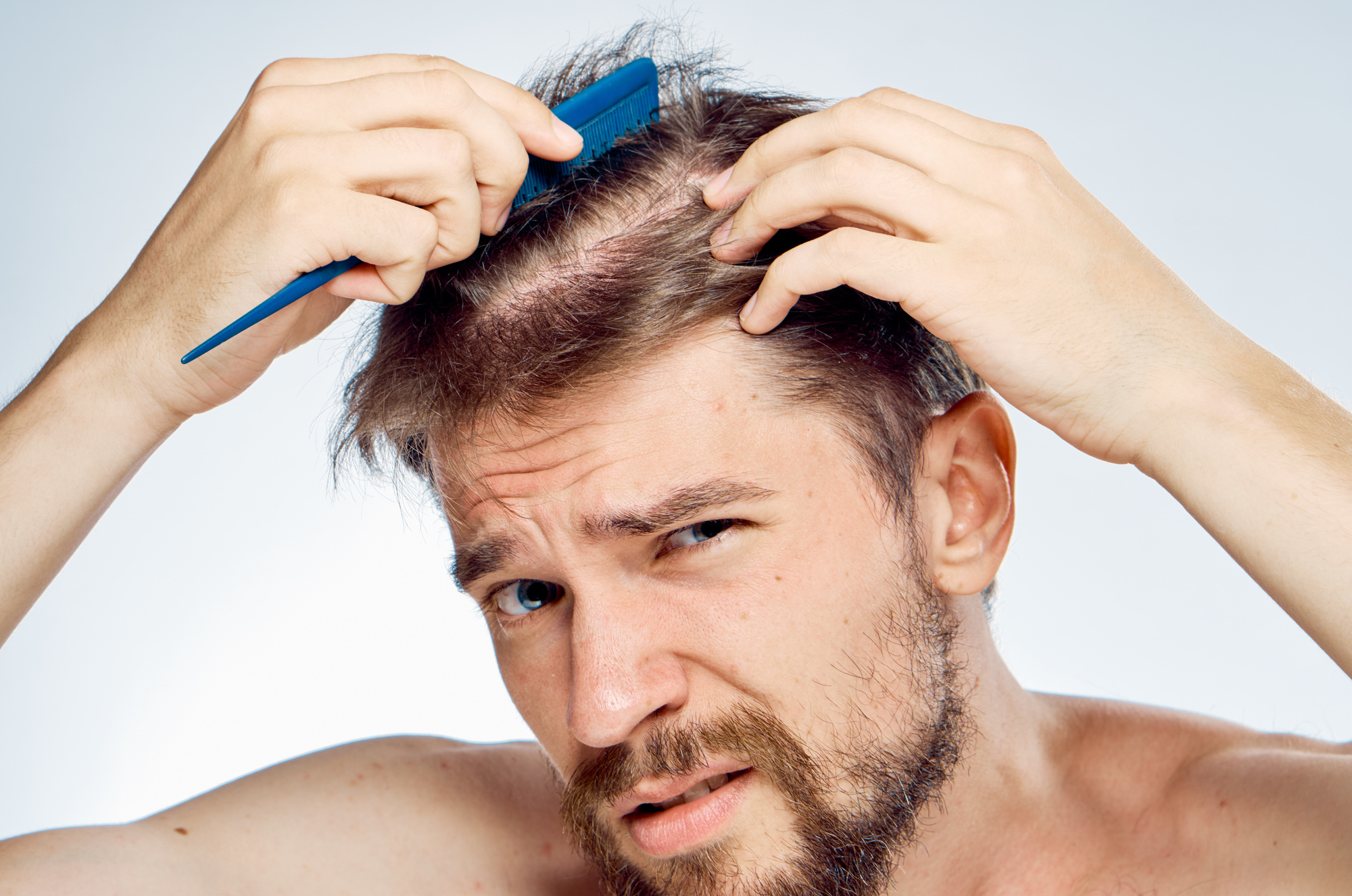
Hair Loss: Symptoms, Treatments, and More

Did you know that by age 35, around 2/3 of men will struggle with hair loss? While it’s common, hair loss in women is also a regular issue, too.
Early Signs of hair loss can be a difficult and embarrassing problem to deal with. It’s hard to know when you should start treatment, or even what treatments are available. You may feel like you have nowhere to turn for help.
Don’t worry – we’ve got your back! Keep reading because this article will provide all the information you need about hair loss symptoms, treatments, and more so that you can take control of your hair health today.
Symptoms
When it comes to hair loss, there are many symptoms that you may be struggling with. They include:
Thinning hair: This is the most common symptom of hair loss, and it involves a gradual decrease in the amount of hair on your scalp.
Excessive shedding: Hair shedding can occur due to various factors including stress, illness, and hormonal changes. If you’re losing more than 100 hairs per day then it’s likely that you are experiencing abnormal hair loss.
Bald patches: This is another sign of alopecia, a condition in which areas of baldness appear on the scalp or other parts of the body.
Receding hairline: A receding hairline usually begins with a line of thinning around the temples and forehead area, slowly progressing until there is an obvious M-shape pattern.
Scalp visible through hair: If your scalp is visible in areas where it wasn’t before, you are likely suffering from hair loss.
Itchiness or irritation: An itch on the scalp can be caused by several things, including excessive dryness, dermatitis, and psoriasis. However, if it’s accompanied by other symptoms of hair loss then this could be an indication of a more serious issue.
Causes
Now that you know the signs of hair loss, it’s important to understand what can cause it. Hair loss can be caused by a variety of factors including:
Stress
If you suffer from high levels of stress, it can cause the hair follicles to become dormant and stop producing healthy strands of hair. Focus on reducing activities that cause excessive amounts of stress.
Hormonal Changes
Hormones play an important role in regulating the growth and shedding of your hair. Changes in hormones due to pregnancy, menopause, or thyroid disorders can lead to excessive shedding and thinning.
Medications
Certain medications such as chemotherapy drugs can cause temporary or permanent hair loss as a side effect. It is important to discuss this possibility with your doctor before taking any medication.
Genetics
Genetics is thought to be one of the most common causes of hair loss. This is especially true with male pattern baldness, where a receding hairline and thinning of the crown can be seen.
Treatments
If you’re suffering from hair loss, there are a few treatments available that can help to slow down or stop the process. These include:
Medications
While some medications can provide great results for hair regrowth, there are several things to consider before starting any treatment plan. First, always consult with a doctor about the side effects of medications like minoxidil and finasteride, as well as possible drug interactions with any existing prescriptions you may have.
Secondly, it is important that you set realistic expectations for your hair loss treatment regimen; medication will often work better when coupled with lifestyle modifications such as following a balanced diet and limiting stress levels.
Finally, if you do decide to begin taking one of these medications for hair regrowth be sure to be patient and consistent—medications take time to show effectiveness, so regular use over an extended period is key for maximum success.
Laser Therapy
Laser therapy is an increasingly popular treatment for those seeking to address hair loss issues. This procedure involves using light energy to not only stimulate the growth of new hair follicles but also increase blood flow and nourishment to existing ones. Nurturing already existing follicles helps them remain healthy and keeps them better equipped to prevent further hair thinning or loss.
As this treatment is non-invasive, it is well tolerated with less downtime than traditional methods, such as from medications or surgery. Results usually begin appearing within a few weeks of beginning treatments, making laser therapy a highly sought option for those looking for fast results in dealing with hair loss problems.
Surgery
Surgery is one of the more drastic forms of hair loss treatment options available and is usually only recommended if other treatments have failed or less extreme methods are not viable. During this procedure, a skilled surgeon will take healthy follicles from donor sites – such as the neck or sides of the head – and transplant them onto areas that have thinning or baldness.
It can be a lengthy process due to having to wait for these transplanted follicles to generate new hair growth in the affected area. Furthermore, there is no guarantee that everyone will succeed in achieving their desired results from surgery. However, numerous clients report great satisfaction from undergoing hair transplant surgery.
Diet and Lifestyle Changes
Making lifestyle and dietary changes can have a major impact on hair health. Choosing nutrient-packed fresh fruits and vegetables, healthy lean proteins, and foods with beneficial fatty acids can all contribute to healthier-looking hair.
Depending on the severity of hair loss, it is important to properly counsel one’s current diet and absorption of essential vitamins like vitamin A, C, E, and B complex to maximize results. Additionally, managing stress levels through activities such as meditation, yoga, and exercise can also aid in achieving healthier locks.
With an understanding of both diet and lifestyle requirements for optimal hair health, we can better achieve the desired result of not only reducing further hair loss but also promoting healthy regrowth.
Start Combatting Hair Loss Symptoms Now
If you’re losing hair at an alarming rate, don’t panic. Don’t go for the shaver just yet. By adjusting your lifestyle and working to treat hair loss causes, you can combat hair loss before it becomes a huge issue.
Shop our selection of hair loss products to start fighting hair loss today.
Related Posts

Finding the Right Medication for Your Diabetes Management Program
February 10, 2025